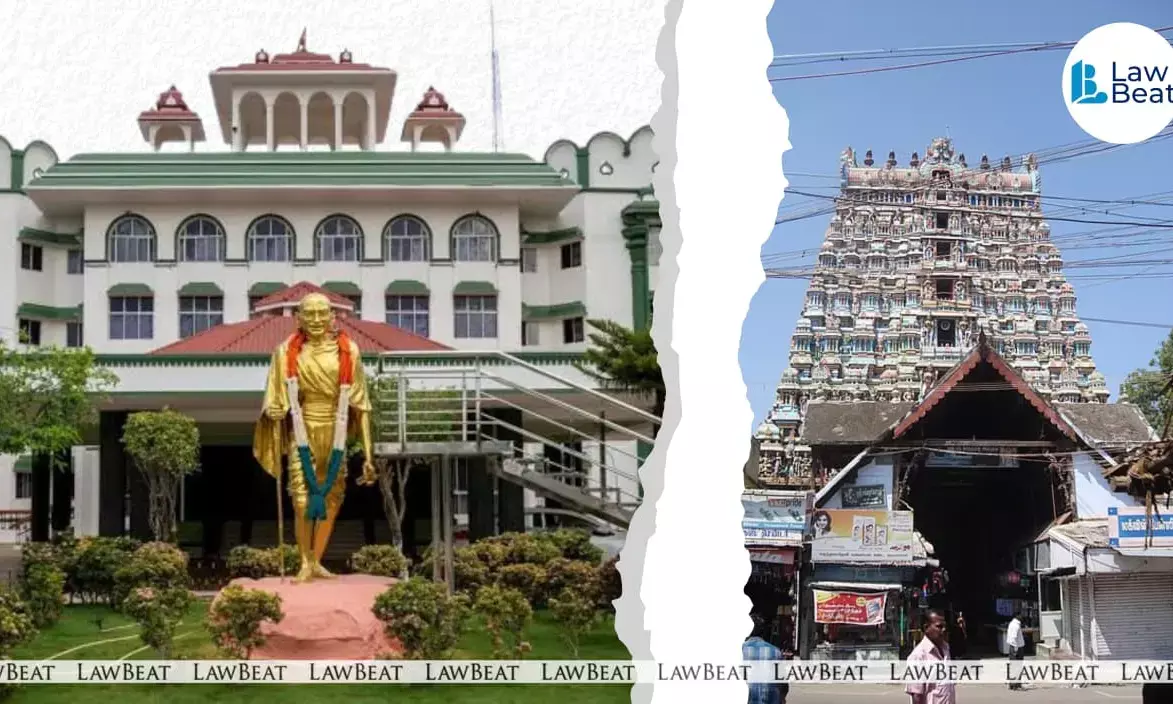Madras High Court Raps HR&CE Officials Over Shops Inside Nellaiyappar Temple

The Madurai Bench of the Madras High Court has taken a serious view of the commercialisation of temple premises, pulling up officials of the Hindu Religious and Charitable Endowments (HR&CE) Department over allegations that shops have been permitted inside the centuries-old Nellaiyappar Temple in Tirunelveli.
The division bench of Justice S.M. Subramaniam and Justice G. Arul Murugan was hearing a writ petition filed by one K. Balasubrahmanyam, who sought a direction to the Archaeology Department to declare the Nellaiyappar Temple as a monument of national importance under the Ancient Monuments and Archaeological Sites and Remains Act, 1958. The petitioner argued that the temple, a renowned architectural and cultural landmark, was being degraded due to commercial exploitation.
During the hearing on August 25,2025, court expressed dismay over reports that commercial shops had been set up inside the Udan Mandapam, an ancient structure within the temple complex. The division bench noted that such an act not only violated statutory provisions but also offended religious sentiments.
Citing Section 77 of the Tamil Nadu Hindu Religious and Charitable Endowments Act, 1959, the bench observed that any lease or mortgage concerning monuments and sculptures within temples is void. Officials who permitted such activities, the court held, were responsible and must face disciplinary action and possible prosecution.
In a significant move, the judges suo motu impleaded the Joint Commissioner of HR&CE, Tirunelveli, as a party to the proceedings. Court directed the official to appear in person to explain how such commercial activity was permitted within the premises of the Nellaiyappar Temple. Court also directed the government pleader to immediately convey the order to the Joint Commissioner through phone or electronic communication.
The order made it clear that temples are not commercial establishments and can not be allowed to degenerate into marketplaces under the guise of revenue generation.
The order also underscores the judiciary’s growing concern over the management of temple properties in Tamil Nadu, many of which are under the direct control of the HR&CE Department. The department has frequently faced criticism for alleged mismanagement and misuse of temple lands and resources.
The petitioner’s plea for recognising Nellaiyappar Temple as a monument of national importance reflects a broader demand for bringing major temples under the protection of the Archaeological Survey of India (ASI). Such recognition would not only provide greater legal safeguards but also ensure better conservation efforts.
The Nellaiyappar Temple, dedicated to Lord Shiva, is one of the largest temples in Tamil Nadu and is celebrated for its intricate carvings, sprawling mandapams, and unique architectural features. The Udan Mandapam, where the shops were reportedly set up, is considered an important cultural and historic structure.
Case Title: K.Balasubrahmanyam vs. Principal Secretary To Government, Tourism,Culture and Religious Endowments Department and Others
Order Date: August 25, 2025
Bench: Justice S.M. Subramaniam and Justice G. Arul Murugan
